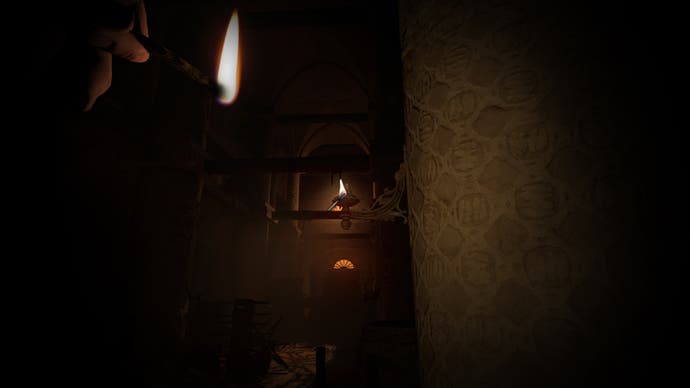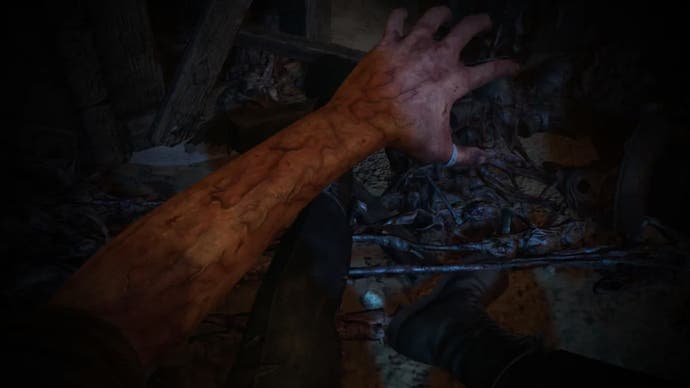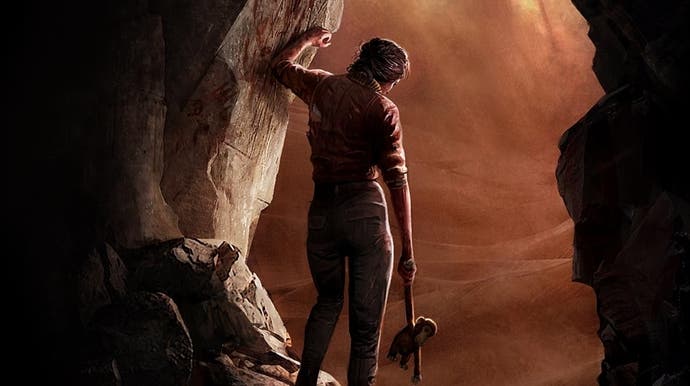Frictional shows off five unsettling minutes of Amnesia: Rebirth gameplay
And talks improved fear and failure systems.
We're only a few weeks away from the release of Frictional Games' latest horror opus, Amnesia: Rebirth, and the developer, while still being coy about specifics, has now shared a five-minute gameplay trailer and teased some of the overhauled mechanics set to terrify at launch.
The atmospheric gameplay trailer speaks for itself, showing just a tiny portion of protagonist Tasi Trianon's "harrowing" journey through the Algerian desert in the 1930s. Over on the PlayStation Blog, however, Frictional's creative director Thomas Grip has shared a little more detail on how Rebirth updates the systems driving 2010's acclaimed Amnesia: The Dark Descent to create a more modern - and more terrifying - experience.
Frictional's goal, says Grip, is to effectively simulate the kind of Gothic horror - often defined by "vulnerable protagonists exploring unsettling environments" - associated with the work of writers like Poe, Stoker, and Lovecraft. To that end, it's overhauled some of the original Amnesia's most memorable mechanics, including light sources and sanity.
In Rebirth, The Dark Descent's tinderboxes have been replaced with matches, partly to better fit the 1930s time period, but also because of the gameplay possibilities matches afford. Grip says matches can still be used to illuminate candles and lights around the environment - vital for enhancing the sense of exploration - but explains that interesting choices emerge from the fact they're their own light source. Should players, for instance, burn through their limited supply to provide light in the moment or should they save them to illuminate light sources later on?
Then there's the fact that matches blow out if a player move too quickly, forcing them to slow down - even while their instincts tell them to do otherwise. Grip says these kind of details enable the developer to simulate memorable, but entirely unscripted, moments of terror.
A match might burn out unexpectedly, for instance, plunging the player into darkness. And when they successfully manage to light another, a lumbering monstrosity might have roamed into view of its own accord, suddenly illuminated inches from the player's face: "A moment straight out of a Poe story, but all built by dynamic gameplay."

As for Rebirth's sanity system, it apparently delivers a notable evolution of The Dark Descent's comparatively "simplistic" version. According to Grip, the changes are intended to serve Rebirth both mechanically and narratively, and are now based around a mysterious disease afflicting Tasi. The more afraid she is - from the darkness or from witnessing horrors - the worse her symptoms become, giving players a "much more visceral reason to care about the fear". What's more, taking inspiration from the slow-burn approach to existential horror seen in Frictional's previous game SOMA, Tasi's condition will apparently worsen over time.
Grip also notes that Rebirth's fear system is intrinsically tied to its "failure" system. While The Dark Descent's effort - which respawned players a short way back in slightly different environmental conditions - was generally effective, says Grip, it could be easily gamed, with players able to simply charge a threat until it was no more.

In Rebirth though, fear and failure have tendrils that stretch throughout the game, and will have a long-term impact on the experience. "Not only will it threaten the life of [Tasi]", explains Grip, "but also of her loved ones." This should help create a "looming sense of dread and... capture that feel of character's descent down a spiral of despair."
SOMA was, of course, an electrifying effort, both terrifying and profoundly affecting, yet Grip says the studio believes it's managed to make gameplay more closely support the narrative this time around, creating a more "coherent whole" that it hopes will be "just as impactful as the mind swapping was in SOMA, if not more so.". Expect plenty of quickening pulses when Amnesia: Rebirth comes to PC (via Steam, GOG, and Epic) and PlayStation 4 on 20th October.




